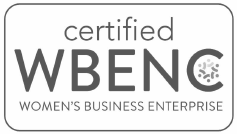Does being on camera make you nervous? Would you rather defer an interview to a colleague than speak to the reporter yourself? Do you fear being asked a question that you are not prepared to answer? While media interviews provide business, nonprofit and community leaders an opportunity to cultivate relationships with key media and demonstrate expertise, being ‘on air’ isn’t every person’s cup of tea.
As a public relations agency, we’ve heard it all: “Please don’t make me go on camera.” “Do I have to talk to the reporter?” “Are you sure someone else doesn’t want to comment?” And, we get it. Getting caught off guard while on the record isn’t fun for anyone. Worry not. We’re here to help. Before media come knocking again, take these five steps to proactively prepare for your moment in the spotlight:
1. Ask a colleague to conduct and record a mock interview
Having a colleague conduct and record a mock interview can provide valuable insight into how to improve your interviews. As uncomfortable as watching the interview back may be, it provides an opportunity to detect nervous habits that you may be unaware of such as foot tapping, to see if you tend to scowl or avoid eye contact with the interviewer, and to identify any words, phrases or filler words (um, ah, like) that you tend to repeat. Use this as an opportunity to take notes and make a conscious effort to avoid these snags during future interviews.
2. Make a cheat sheet
Phone interviews afford you the opportunity to have a cheat sheet on your desk when speaking with the reporter. During live interviews, this luxury is rarely afforded. If you think there is even the slightest chance that you may gloss over an important point, forget a key statistic or be asked about a piece of data that you don’t have memorized, jot it down on a cheat sheet. The cheat sheet can also be used as an opportunity to point out key facts that may not have come up during the interview.
3. Anticipate the worst case scenario
Prepare for the worst, hope for the best. Rather than entering an interview nervously anticipating the one question you don’t want to answer, proactively prepare for how you will answer if the topic comes up. This will allow you to be more relaxed during the interview and reduce the likelihood of a ‘foot in mouth’ moment. The opportunity to secure a correction is only available when misinformation is printed or aired, not when you don’t like how your remarks came across. If you made them, you own them.
4. Find ways to make your content accessible
Industry jargon may be familiar to those who work with it on a daily basis but the same may not be true for the reporter and/or the readers. Whether it is a short anecdote, analogy or simpler way of explaining the matter at hand, find ways to make the information digestible and minimize opportunities for misinterpretation.
5. Research the reporter
Do your homework. Read the reporter’s recent stories, watch their on-air footage and/or listen to their radio show. The more familiar you are with the reporter, the types of stories they cover and the way they package information, the better prepared you will be for your interview. Additionally, you may discover that you are passionate about a common cause, graduates of the same college or share another commonality which may help you to feel more relaxed. That said, always remember that you are talking to a reporter and that off-the-cuff remarks are not appropriate and may lead to a story that you aren’t fond of.
Media interviews are great opportunities to shine the spotlight on the work your business or nonprofit is doing, to lend local industry insight on a timely news topic, and to demonstrate community impact. The next time you are faced with an interview opportunity, take some time to prepare and practice. Better yet, before you are presented with another media opportunity, take the time to hone your interview skills and prepare to deliver your best interview ever the next time a media opportunity arises.

